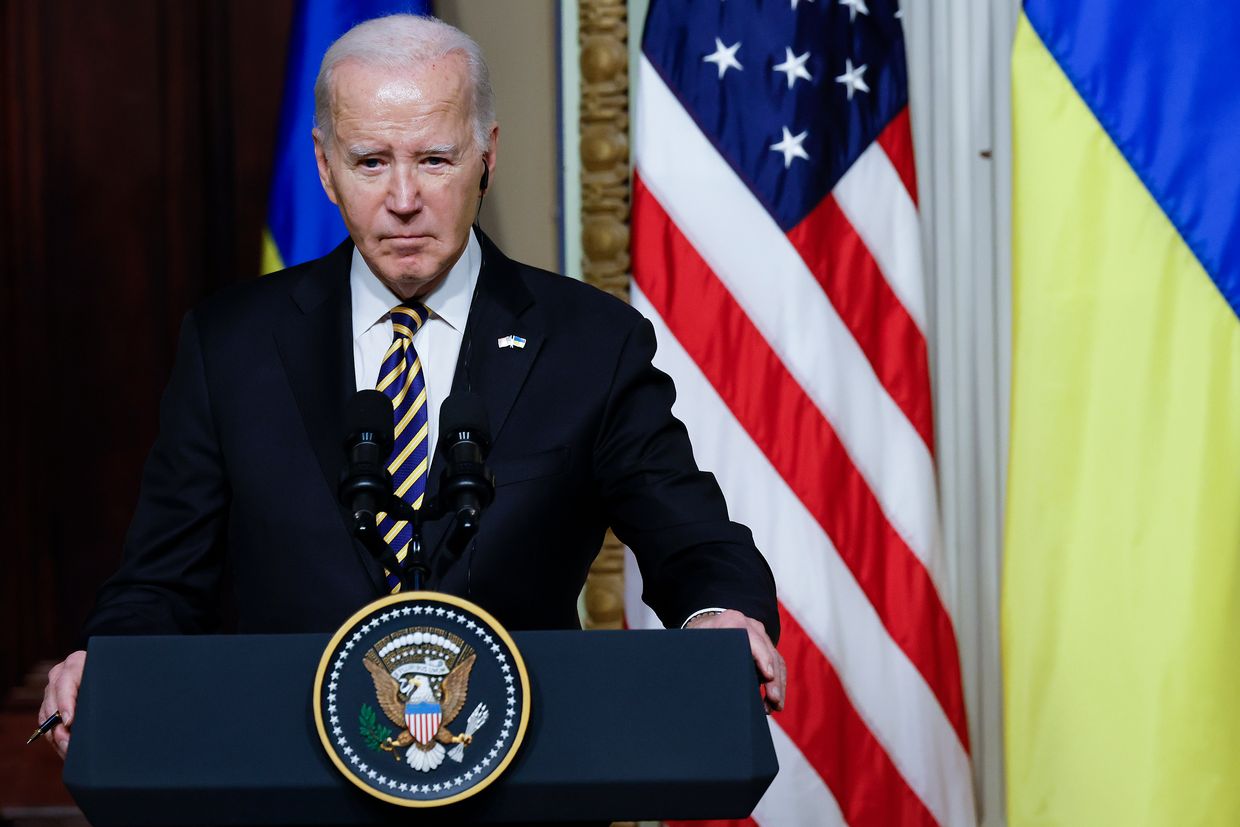Here's where Kamala Harris's potential VP picks stand on Ukraine

Vice President Kamala Harris speaks during a campaign event at the Asian and Pacific Islander American Vote Presidential Town Hall at the Pennsylvania Convention Center in Philadelphia, Pennsylvania, U.S. on July 13, 2024. (Drew Hallowell/Getty Images)
With the Democratic party planning to nominate U.S. Vice President Kamala Harris as the party’s 2024 presidential nominee by Aug. 7, a running mate selection is near.
Amid a surge in donations to her campaign and new polling numbers revealing a diminished gap against former president Donald Trump in key swing states, Harris’s pool of potential running mates has reportedly been narrowed to three.
Arizona Senator Mark Kelly, and governors Josh Shapiro of Pennsylvania, and Tim Walz of Minnesota are said to be in final consideration.
Among the Democrats that were reportedly in consideration before the narrowed trio were governors Whitmer of Michigan, Andy Beshear of Kentucky, JB Pritzker of Illinois, Roy Cooper of North Carolina, and Wes Moore of Maryland, as well as Secretary of Transportation Pete Buttigieg, and Secretary of Commerce Gina Raimondo.
Here is what the three Democrats in final consideration have said about Ukraine and how their past statements offer a glimpse into what their stance on Russia’s war might be:
Mark Kelly
A former Navy pilot and current Senator from Arizona, Kelly, 60, is one of the candidates being considered that has advocates for Ukraine in Washington excited.
Last week, Kelly, a former NASA astronaut who represents a border state, went on the offensive against Trump’s running mate JD Vance, giving a glimpse of how a potential vice presidential debate over foreign policy would sound.
“It’s pretty clear to me you’ve got JD Vance who wants to abandon Ukraine, and you’ve got Donald Trump who has been in the past rather pro-Russia and leaned in with Vladimir Putin in ways I would never expect the president to do,” Kelly said in a July 24 interview with Politico.
“So again, we have a serious choice to make, and I’d be really concerned about what those guys would do to abandon an ally in favor of an adversary. And that would be a much more dangerous world.”
Kelly’s support of Ukraine has been quite known, as he took to the Arizona skies with Ukrainian pilots training on F-16, furthering his support of delivering the jets to Ukraine. The transfer of F-16s is an element of support Kelly has been adamant about, bringing it up at the 2023 Munich Security Conference, in a letter to the Defense Secretary, and with President Volodymyr Zelensky during two visits to Ukraine.
Russia’s full-scale invasion of Ukraine is a fight of “good versus evil,” Kelly said after visiting Ukraine in September of 2023. Russian President Vladimir Putin is committing war crimes on a daily basis, he added.
Josh Shapiro
The 51-year-old governor has led what many say is the most crucial swing state in the 2024 election, Pennsylvania, since being elected in 2022. Shapiro, who is Jewish, moderate, and Pennsylvania’s former Attorney General, has drawn opposition from the left of the Democratic party for his consistent support of Israel in its war in Gaza.
On the morning of the full-scale invasion, Shapiro tweeted about his connection to the large Ukrainian community his state is home to. “Pennsylvania is home to the second largest population of Ukrainians in the United States,” he said. “As they fear for their family, friends, and their country today, we stand with them.”

As a career politician of the state of Pennsylvania having served three terms as a state representative, Shapiro is largely viewed as a ticket to winning the swing voters of Pennsylvania in November.
As attorney general in March 2022, Shapiro released guidance on how Pennsylvanians could donate to people in Ukraine. Shapiro has often made remarks in support of Ukraine, but has taken minimal action in practical foreign policy toward Ukraine compared to other contenders.
Tim Walz
The former Army National Guardsman and 60 year old governor of Minnesota won re-election in 2022. In February he established a partnership between Minnesota and Chernihiv Oblast during his meeting with Oksana Markarova, the Ukrainian Ambassador.
Walz, a former high school teacher, met virtually with Zelensky in April of 2023 for a conversation organized by the National Governors Association, the same group that hosted Zelensky in Utah following the NATO Summit in July.

“It was an honor to hear from President Zelensky firsthand and offer him our unwavering support,” Walz said in a statement following the April meeting. “Minnesota is a proud home to many Ukrainian families, and we will continue to welcome and support Ukrainian refugees in our state.”
During the beginning of the full-scale invasion, Walz signed legislation requiring the state of Minnesota to no longer do business in Russia or Belarus.













